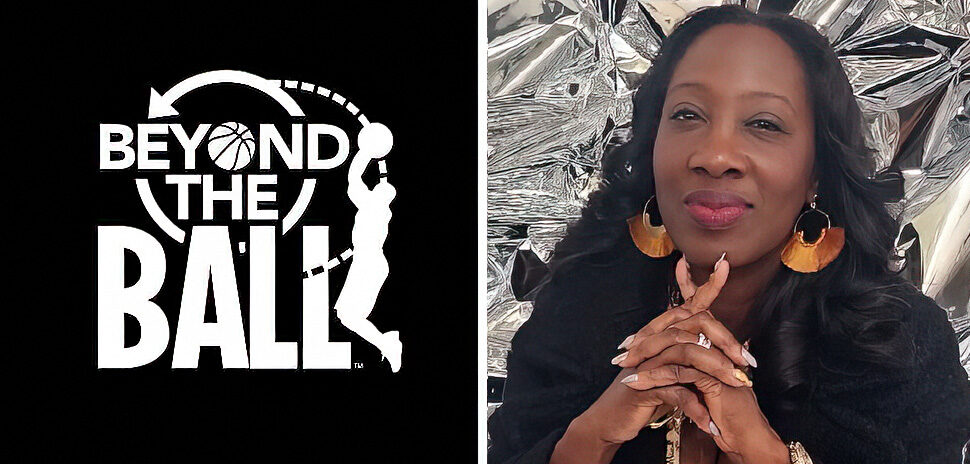Tech entrepreneur Nirav Tolia, who co-founded companies including the world’s largest hyperlocal social network, says an innovator’s failure can be a stepping stone to success.
During a Sept. 12 keynote talk with Capital One’s Kamlesh Talreja at Dallas Startup Week, Tolia recalled how a setback with one internet company he helped start led to the founding of the social networking site Nextdoor.com. The San Francisco-based company, which serves 90% of U.S. neighborhoods and at least 285,000 neighborhoods in 11 countries, went public in 2021 at a valuation of $4.3 billion.
“If you’re going to pick yourself up and keep going, you have no choice but to look in the mirror and ask yourself the really hard question: Why did this happen? Why did I cause it to happen?” Tolia said. “If you’re starting something, or you’re in the middle of something, don’t be afraid of failing—try to learn from it. Because in many cases, it can be the thing you need to get to the next step.”
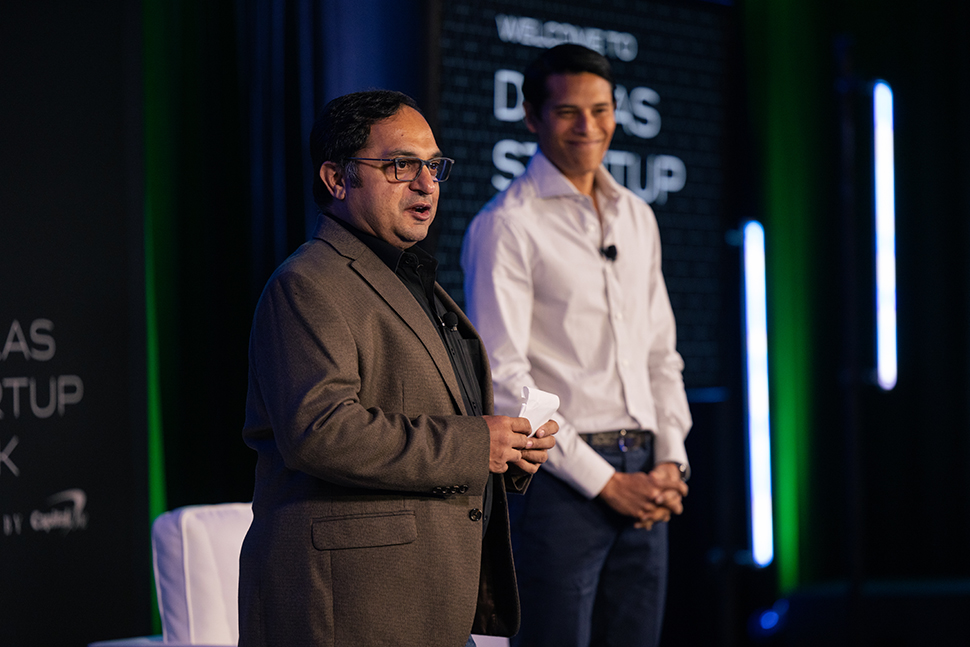
Kamlesh Talreja, left, introduces tech entrepreneur Tolia Nirav during the Corporate Innovation Summit at Dallas Startup Week 2023. [Photo: Dallas Startup Week]
In the conversation with Talreja, Capital One’s senior vice president and chief technology officer, Tolia addressed a wide range of topics besides the upside of failure, from the importance of ecosystems in entrepreneurship to how growing up in West Texas affected the sort of companies he’s founded.
The son of Indian immigrants who were entrepreneurial-minded physicians in private practice, Tolia was reared in Odessa and later attended California’s Stanford University. There, he sold “bootleg CDs on the internet” and worked as the business manager and a performer for the Stanford Fleet String Singers, the university’s comedy a capella group.
“That was my first real hint that I enjoyed business and, because I enjoyed it, it was easier for me to be committed to it and to work hard at it,” he said.
Tolia, a self-described heavy user of the internet by then, in 1996 became employee No. 84 at Yahoo, working as a so-called Surfing Yahoo for the web-services pioneer. He left in 1999 to co-found a community review site called Epinions.com—it later sold to eBay for $620 million—and later Fanbase.com, a Wikipedia-style directory of pro and college athletes.
It was his experience at Fanbase, which Tolia considered “a complete failure” after its user numbers plummeted from 15 million to 8 million in two years, that led to the creation of Nextdoor in 2011.
“The investor said … ‘I don’t want the money back. Why don’t you guys take one summer and see if you can come up with a new idea? You can use this capital against the new idea.’”
“I went back to my main investor [in Fanbase] and said, ‘This thing’s not going to work. I want to give your money back,’” Tolia said. “The investor said, ‘Look, I agree that this thing that you’ve created with your team is not working, but I do believe in the team. I don’t want the money back. Why don’t you guys take one summer and see if you can come up with a new idea? You can use this capital against the new idea.’
“It was actually pretty tough to hear that, because we were so tired, we didn’t really have a lot of gas in the tank to keep going,” Tolia recalled. “I mean, it takes an unbelievable amount of energy to even come up with an idea, and then to test it. Well, we decided to accept the challenge. We met as a group of 12 people, and 12 people went down to six, and those six met every single day. After a couple of weeks we had 15 ideas, and then we slowly but surely tested all the ideas. And that ultimately led us to Nextdoor.
“It was very lucky, no doubt about that.”
‘I could be part of a great success’
The common denominator among all the companies he’s helped start, Tolia said, is building community—an idea he absorbed growing up in Odessa. The oil town 350 miles west of Dallas may be best known for its Permian High School football team, which was the subject of the book, movie, and TV series called “Friday Night Lights.”
“There’s not a lot to see there, not an incredible amount of culture,” Tolia said of his hometown. “The climate is not particularly great, nor is it beautiful from a natural resource standpoint. But there is a strong sense of community—people care about each other. They care about where they live, they care about lifting each other up.
“My senior year at Permian High, the football team was undefeated and won the state championship,” he said. “Guess how many players on that team went on to play college football? Only one. It was not about any of the individual athletes—who weren’t particularly tall or strong or even fast—but they played incredibly well together. That was a really important lesson.
“I realized that even though I may not be the tallest or strongest or fastest, if I were part of a team and if I committed to doing everything that the team needed, I could be part of a great success. So, when I moved on to start companies, I not only felt the importance of building a winning team first, I wanted to work on products that were essentially technology tools that would allow people to create community themselves.”
Tolia said that because “being an entrepreneur is incredibly lonely,” he would advise founders to secure at least one co-founder, as companies like Google and Microsoft did.
” … research has found that in many cases, two founders, at least from a quantitative perspective, provides the greatest probability of success.”
“There’s been a lot of research at Stanford University on tech, founders, and startups. And that research has found that in many cases, two founders, at least from a quantitative perspective, provides the greatest probability of success,” he said. “I care so much about community and doing things with a team, I tend to think I want [a co-founder] I like, someone I respect, someone I trust.
“Life is too short to do things with people we don’t enjoy being around. And I say respect, because you better bring someone on that you think is pretty impressive, that’s going to help you win. And trust, because when you’re at your worst, you want to have someone around to be there to pick you up and to make you a better person—someone who will similarly commit to being picked up and to work on being the best person he or she can be.”
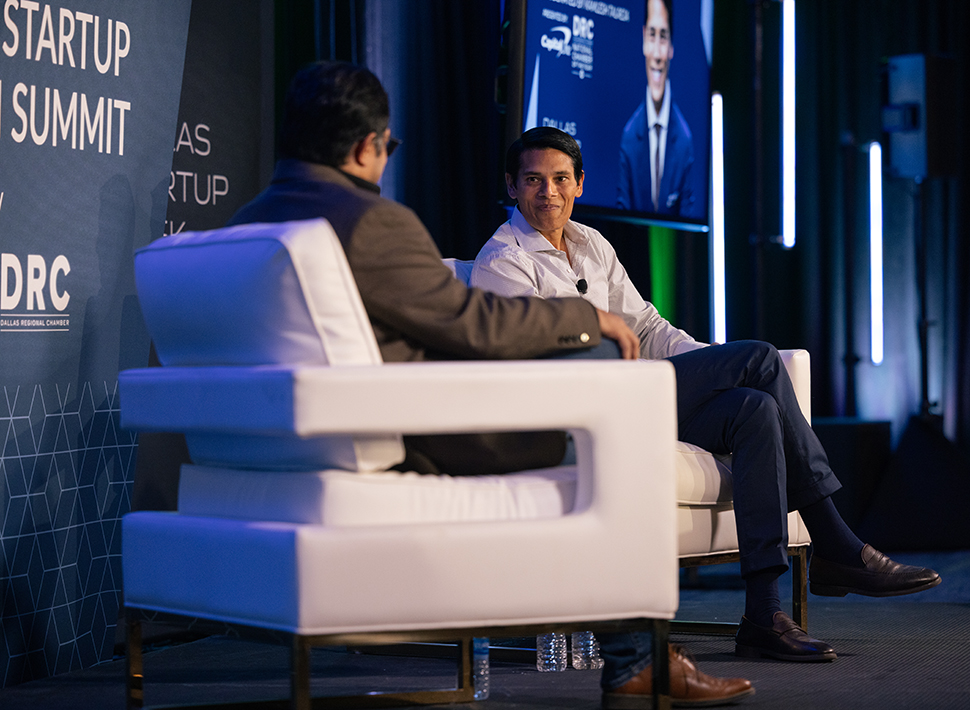
[Photo: Dallas Startup Week]
Lessons from two great mentors
Asked by Talreja how startup entrepreneurs can strike the proper balance among competing business priorities, Tolia said he was helped on that score by two great mentors: legendary investor John Doerr and Bill Campbell, known as the “Trillion Dollar Coach” for business icons including Jeff Bezos and Steve Jobs. Doerr helped him realize the importance of OKRs (Objectives and Key Results), a framework to define and accomplish a company’s measurable goals and track the results on a regular basis, Tolia said.
Campbell showed him how critical it was to allocate the right amount of time to the most important needs.
“Typically, the things that are required to succeed are the hardest things. And, what do we as humans want to spend time on? The easiest things.”
As a result, “I quickly found out that I was spending a lot of time on things that weren’t even among my top five [priorities], and I wasn’t spending enough time on the things that were most important,” Tolia said. “Bill went on to explain that this is just basic human nature. Typically, the things that are required to succeed are the hardest things. And, what do we as humans want to spend time on? The easiest things.
“And so you’re running a company, you have 100 things to do, and you do the 99 things that really don’t matter. And then at the end of the day, you do the last one, when you’re exhausted. So, that really helped me start to organize my time and effort as a company gets larger.”
Currently the executive chairman of Hedosophia, a London-based tech investment firm, Tolia now lives in Highland Park with his wife Megha Tolia, the president and COO of global TV production company Shondaland, and their three sons. Earlier this month, the power couple were named co-founding directors of the new William S. Spears Institute for Entrepreneurial Leadership at SMU’s Cox School of Business, aiming to “foster the entrepreneurial mindset not just at SMU but in North Texas more broadly,” Tolia said.
‘It’s just going to take a lot of hard work, a lot of courage’
Certainly, he added, conditions are right for North Texas innovators to jump-start that entrepreneurial mindset.
“I truly believe that moment is now not just for Dallas-Fort Worth, but for many places around the world.”
“Having lived in Silicon Valley during a real golden era, I understand the importance of an ecosystem, a community, a group of people that are committed to working together and lifting each other up to collectively create lots of companies and lots of entrepreneurial success,” Tolia said. “And I truly believe that moment is now not just for Dallas-Fort Worth, but for many places around the world. When I think about Dallas events like this—like the AI conference that was announced for next spring—those are the kinds of things that we need. Because in almost all cases, we get inspired by successes that we see, and then we go stand on the shoulders of giants.”
To illustrate the point, he pointed to his own journey as a founder.
“Imagine joining Yahoo as employee 84. The value of the company was $100 million, and by the time I left three years later to start my own company, there were 10,000 employees, and the value of the company was $100 billion,” Tolia said. “I remember at my going-away party, one of the Yahoo co-founders, Jerry [Yang], came to me and said, ‘Now, tell me again why you’re leaving?’ And I said, ‘Well, Jerry, I think about what I’ve seen the last three years and how incredible it’s been to witness this company growing, and I felt like a lottery ticket winner. Now I want to try to do it myself. I want to be a person who can create a Yahoo.’
“That is the stupidest thing I’ve ever heard. You have no idea how hard it is.”
Yahoo Co-Founder Jerry Yang
“And he looked at me and said, ‘That is the stupidest thing I’ve ever heard. You have no idea how hard it is. When you fail, you can come back here and work.’ He said it in a kind of avuncular, supportive way, but I was sort of like, ‘He is absolutely right!’ But after seeing that success, it gave me the courage to want to do it myself.
“The hardest thing for ecosystems of entrepreneurship is to have just a few successes,” Tolia continued. “Because as an ecosystem grows, as it takes flight in the early days, it is not linear—it’s nonlinear. It’s a little bit like a flywheel. You’re doing a lot of things, but it feels like the flywheel is not moving at all. So, you have to keep doing, keep doing, keep doing, and then that flywheel moves a little more and a little more and a little more. This is what happened in Silicon Valley: There was one success, then another, then another. And now that flywheel is spinning on its own.
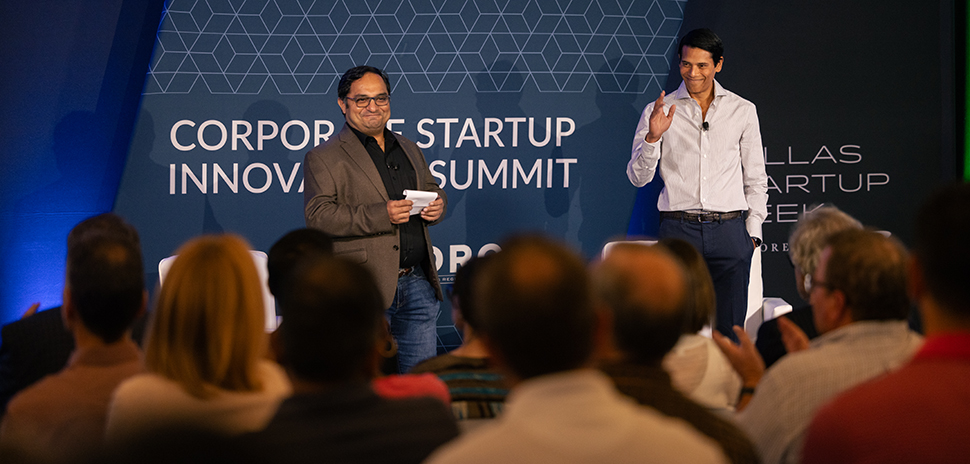
[Photo: Dallas Startup Week]
“This idea that you could start a company and that company can have 100 million daily users or generate $100 billion in revenue—that’s something that people truly believe in Silicon Valley,” Tolia said. “Do they believe that in Dallas yet? I know people in this room do, but collectively we need to see more successes. So, it’s incredibly important to get this going here, because think of the natural assets we have.
“…it’s incredibly important to get this going here, because think of the natural assets we have.”
“There’s a long tradition of entrepreneurship here. There already are giants in this area. There is an incredible optimism and positive attitudes with people in this area. So many people are moving here,” he said. “It’s a great place to live. You can raise a family here. You can afford to be here. We shouldn’t take those things for granted, because they don’t exist in almost every other place in the country, if not the world.
“We have all the ingredients; it’s just going to take a lot of hard work, a lot of courage,” he said. “And then when there are some successes, those successes will spawn more successes. And this thing will get going.”
![]()
Get on the list.
Dallas Innovates, every day.
Sign up to keep your eye on what’s new and next in Dallas-Fort Worth, every day.

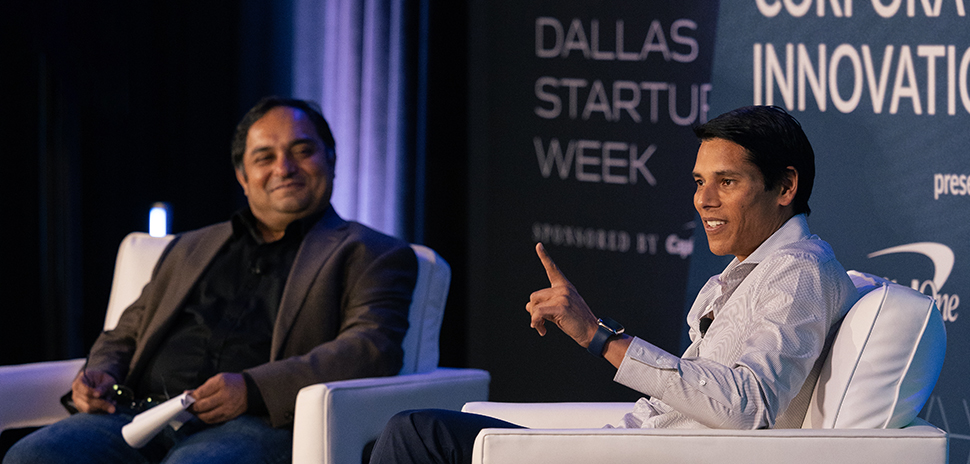
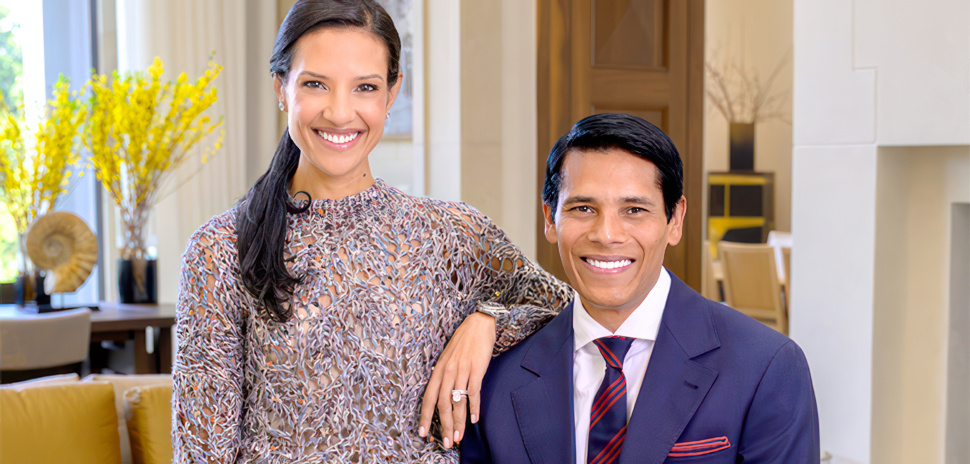
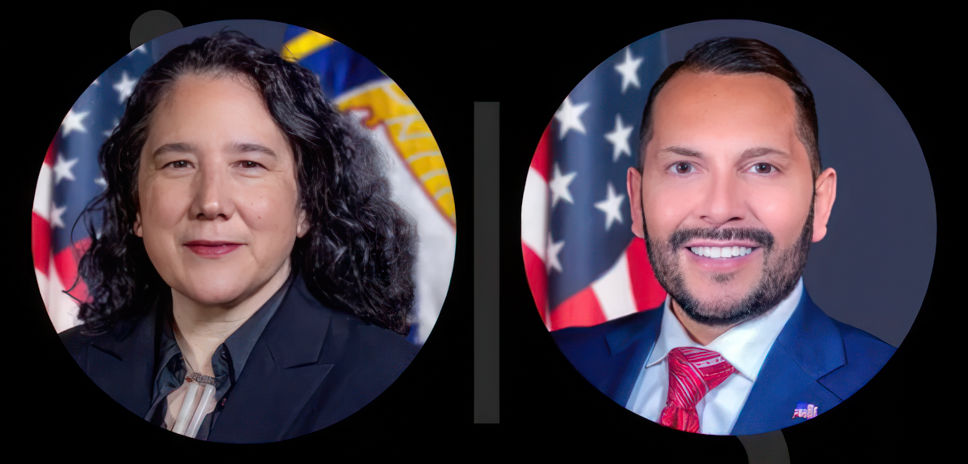
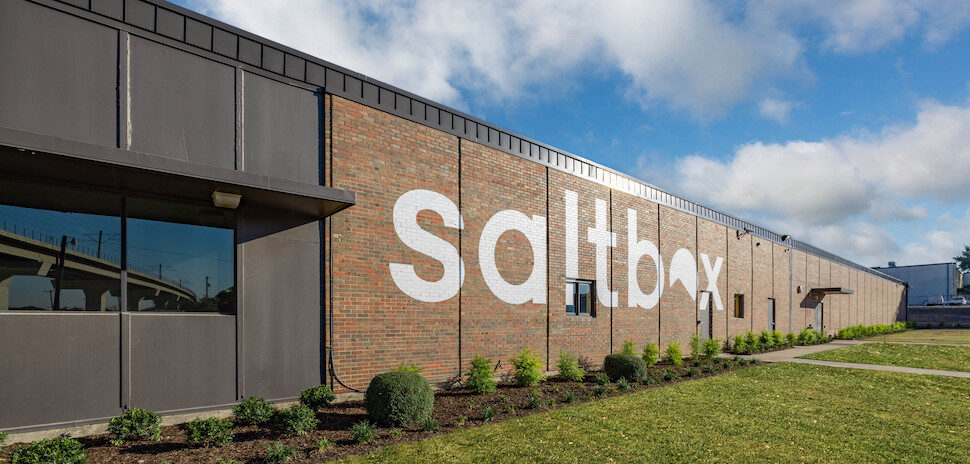
![From left: Ezi Negus, Okigwe Creations; Greer Christian, PureNRG Cycle; Awah Chai, Offworld Coffee; Kimberly Matthews, Holy Rollie Pastry Shop; and moderator Tarsha Hearns, The DEC Network. [Photo: The DEC Network]](https://s24806.pcdn.co/wp-content/uploads/2023/08/Panel-970x464.jpg)
